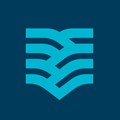Want a diverse talent pipeline? That awareness must start in primary school
Suzy Urbaniak, Founder of the CoRE Learning Model and Co-Founder of the CoRE Learning Foundation, will be joining AusIMM’s Thought Leadership Panel to discuss the future of our workforce, launching online from 2 June.
In the lead up to her seat on the panel, we caught up with Suzy to learn about the CoRE Learning Model and how she is shaking up the curriculum in schools to include Earth Science and creating awareness for career pathways in the resources industry.
What led to the creation of the CoRE Learning Model?
I entered the mining industry over 35 years ago as a geologist. When I initially started as a graduate, the first thing I noticed was the lack of Western Australians. Across all disciplines, most graduates were from the Eastern states, and I just thought “Wow, a resources hotspot like WA; where is all the homegrown talent?”
The second thing I realised during my studies was I wasn’t truly taught how to be a scientist. There was a huge disconnect between what we were doing in the classroom and what it was preparing us for. The things I was doing as a scientist in the field, I had little to no exposure to, other than doing my Honours.
I didn’t realise it at the time, but 15 years later, these learning would be the foundation to the development of the CoRE Learning Model.
What is the CoRE Learning Model and the CoRE Learning Foundation, and what separates the two?
The CoRE Learning Foundation (NFP) delivers the CoRE Learning Model (CoRE) and the Gamifying Earth Science Learning initiative to primary and secondary aged students. The Foundation is a result of the development of the CoRE Learning Model, which has always been inclusive of STEM teachings.
The beginning of CoRE initially focused on students working collaboratively in teams on projects. They used scientific methods and carried out proper scientific investigations, not chocolate cake recipes. We took students on fieldtrips to collect data from the field, where they gained data literacy, and applied numeracy skills to interpret their findings.
Fast forward to now, the CoRE Learning Foundation works in the upstream and a big component is building the awareness of possible careers in mining. The CoRE model is currently run in 21 schools, with around 119 schools having implemented the Gamifying initiative.
How are your learning models delivered?
CoRE is a resource and learning model, with contextually set projects that allow students to connect their learnings and the purpose of their learnings, to their talents, capabilities, and passions, and ultimately to their career pathways.
We collaborate with schools and educators to customise a program to reflect their students and their environment. I call it CARMA (contextual, authentic, relevant, meaningful, and applicable learning). With CARMA, students are actually understanding how their STEM learnings apply to their future world. The awareness of Earth Science and the awareness of careers within the resources industry is clear, because the number of alumni that I have coming out of my classrooms is amazing and almost all are working in the industry now.
How is CoRE’s delivery different to typical ATAR frameworks when it comes to educational science principles?
Our CoRE Learning Model uses an inclusive STEAM framework and learning strategy to deliver projects, rather than the old-fashioned way of using textbooks and worksheets with an exam at the end.
The delivery is inclusive because it allows all students, like your traditional B’s, C’s and D's (grades), the opportunity to succeed because there is a diversity of learning tasks through which they can align themselves to and feel comfortable with - therefore enjoying science and the scientific processes.
We implement all this in the upstream, to get these young kids to understand the importance of what they're learning through STEM and in the process, they’re actually developing their intrapersonal and interpersonal enterprising skills.
We create that awareness of the connection with the resources industry, and the fundamentals of technology and the need for metal (earth science). We encompass and connect the whole spectrum and it's that awareness and that relationship that the students have with us over a period of time that gives them the confidence to go, “Yeah, I reckon I can be a part of the resources industry”.
Can you explain how you work in the upstream?
The conversations around attracting and developing the future leaders of the resources industry usually start in year 10, 11, and 12 – or by accident. If you want a diverse talent pipeline, you have to start that awareness in primary school and engage those kids through their diversity of talents and capabilities, and their connection of learning to the earth.
Our model recognises what students are interested in – and letting them be that young scientist or young engineer in the classroom! We integrate games, field trips, and modern technologies into the framework. We have had students that hated science, and since they've done CoRE, they now love science because they explore science through digital technologies, media, building things, engineering things, applying maths, and making sculptures. They've discovered the importance of science in their everyday life, in the world around them, and how it can relate to their potential careers.
We are excited to hear Suzy's expert overview on the Future Workforce panel in June, and the important work that the CoRE Learning Foundation is doing to foster a love of science in our future leaders, which can only be done through the support of industry.
If you would like to support this important cause, please visit corefoundation.com.au or contact Jacobi Herringer, Executive Partnerships Officer, CoRE Learning Foundation at jacobi@corefoundation.com.au




